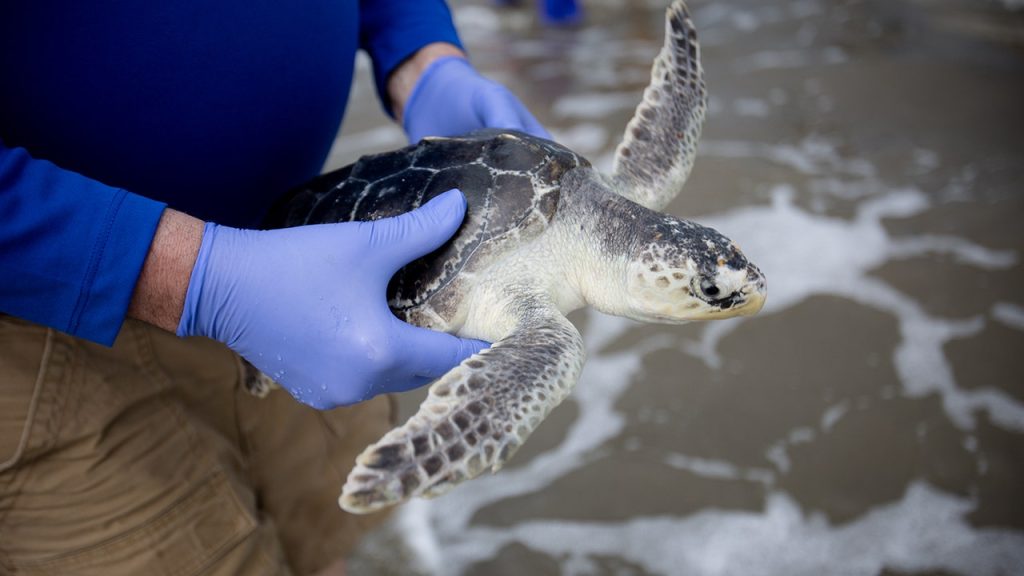On April 3, 2024, nearly three dozen sea turtles were released back into the ocean after months of rehabilitation efforts. The turtles were transported to Jekyll Island in Georgia by multiple marine conservation societies and aquariums. Each winter, sea turtles are known to wash up on shores in Cape Cod, Massachusetts, and New York areas due to dropping ocean temperatures. Volunteers from Mass Audubon’s Wellfleet Bay Wildlife Sanctuary patrolled the beaches for stranded turtles and transported them to the New England Aquarium’s Sea Turtle Hospital. This past season, nearly 400 sea turtles came through the hospital’s doors, leading to a strain on resources and space.
The New England Aquarium turned to the National Oceanic and Atmospheric Administration (NOAA) Fisheries Service and Turtles Fly Too for help transporting the turtles to other rehabilitation centers. Turtles Fly Too used volunteer pilots to transport the turtles from Massachusetts and New York shores to facilities such as the Atlantic Marine Conservation Society, Mystic Aquarium, and the New York Marine Rescue Center. The turtles underwent four to five months of rehabilitation care to treat their hypothermia-like conditions, including pneumonia, dehydration, and trauma. Over a dozen staff members from six agencies were present as 34 turtles were returned to the sea in Georgia.
Of the 34 sea turtles rehabilitated and released, 33 were Kemp’s ridley sea turtles and one was a green sea turtle. New England Aquarium director of rescue and rehabilitation Adam Kennedy expressed that it was a rewarding experience to see the turtles thrive in the ocean after being nursed back to health. The New York Marine Rescue Center also saw five Kemp’s ridley sea turtles successfully rehabilitated and returned to the ocean. The Atlantic Marine Conservation Society rehabilitated 16 Kemp’s ridley sea turtles, while the Mystic Aquarium’s Animal Rescue Program helped two other turtles involved in the release.
Kemp’s ridley sea turtles typically inhabit New England or the mid-Atlantic region and can weigh about 70 to 100 pounds as adults. They have a lifespan of about 30 years but face threats such as fishing gear, ocean pollution, and climate change. The sea turtles that were stranded late last year received wonderful care during their rehabilitation process and have fully recovered as they were returned to their natural habitat. Turtles Fly Too was instrumental in transporting the turtles to other organizations for rehabilitation. The release of the sea turtles back into the ocean was viewed as a small victory in the ongoing efforts to protect and conserve marine life.


